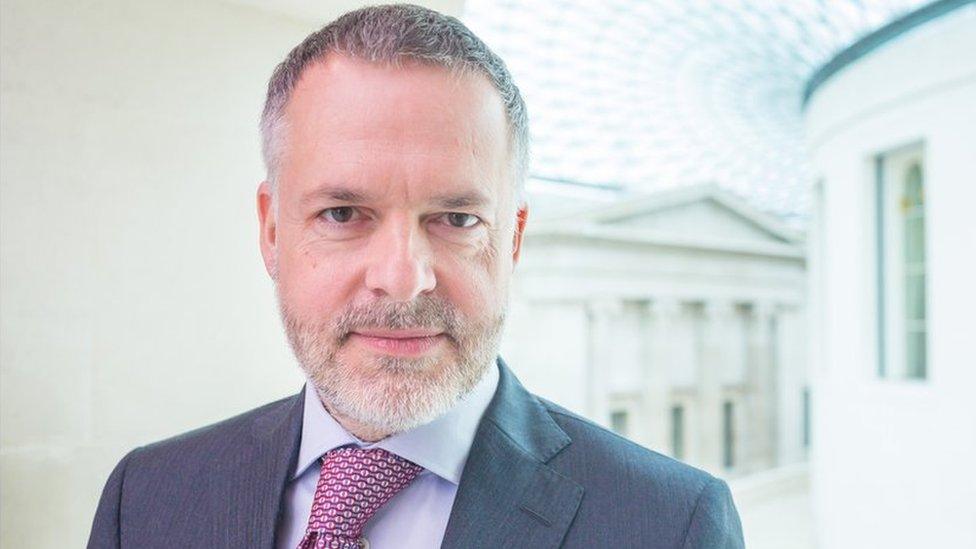British Museum boss Hartwig Fischer defends 2021 theft investigation
- Published

Dr Hartwig Fischer has been director of the British Museum since 2016
The head of the British Museum has defended its investigation into allegedly stolen items, after an art dealer said he alerted bosses in 2021.
The British Museum told Ittai Gradel that "all objects were accounted for", according to emails seen by the BBC.
Museum director Hartwig Fischer now claims the art dealer had more items in his possession, unknown to the museum.
Dr Gradel claimed that was an "outright lie", adding the museum did not contact him despite making himself available.
The museum has sacked a member of staff after treasures were reported "missing, stolen or damaged".
Emails seen by BBC News between Dr Gradel and the museum appear to show the London institution was alerted to the thefts in 2021 but it appears that they did not take sufficient action.
In a statement released on Wednesday, Mr Fischer said that when allegations were brought to the British Museum in 2021, "we took them incredibly seriously, and immediately set up an investigation".
"Concerns were only raised about a small number of items, and our investigation concluded that those items were all accounted for," he continued.
"We now have reason to believe that the individual who raised concerns had many more items in his possession, and it's frustrating that that was not revealed to us as it would have aided our investigations," he said.
Mr Fischer said a "full audit" was launched in 2022, which "revealed a bigger problem", after which they alerted the police and a disciplinary process was launched. This "resulted in a member of staff being dismissed," Mr Fischer said.
He added that his priority was to the "incredible British Museum collection".
In response, Dr Gradel said: "The claim that I withheld information from the British Museum is an outright lie.
"I was explicit in my communication with the British Museum that I was entirely at their disposal for any further information or assistance they would require. They never contacted me."
The British Museum has been contacted for comment.
According to the PA news agency, the missing items are believed to have been taken over a "significant" period of time. Some of them reportedly ended up on eBay, being sold for considerably less than their actual estimated value.
eBay said it "does not tolerate the sale of stolen property".
None of the treasures, which dated from the 15th Century BC to the 19th Century AD, had recently been on display and had been kept primarily for academic and research purposes, the museum said. The majority of them were kept in a storeroom.
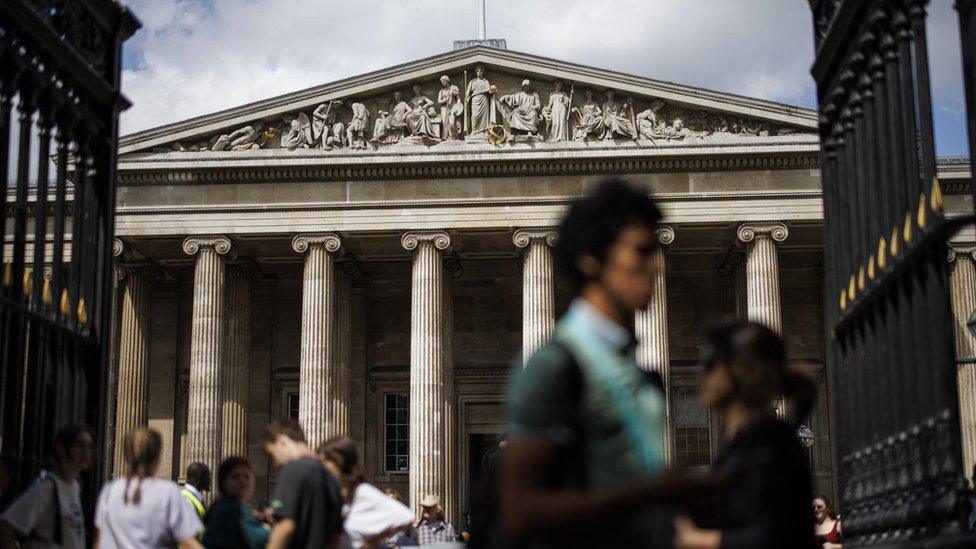
Dr Gradel's emails suggest he became suspicious when he "stumbled" upon a photo of a Roman cameo fragment that he said had been up for sale and had been listed on the British Museum website but had since been removed.
Dr Gradel also alleges in one of his emails that a third-party seller returned a gem to the museum as soon as Dr Gradel told him his suspicions, but claims the museum didn't follow this up sufficiently.
In one of several emails he sent to follow up any progress, this time to a board trustee, Dr Gradel accuses Mr Fischer and deputy director Jonathan Williams of "sweeping it all under the carpet."
In one response emailed in October 2022 to a trustee who was following up on Dr Gradel's concerns, Fischer said there was "no evidence" of any wrongdoing, adding that the "three items" Dr Gradel had mentioned were "in the collection".
It's now believed that more than 1,500 objects were stolen, damaged and destroyed, in a crisis that is threatening the reputation of the British Museum.
Despoina Koutsoumba, director of the Association of Greek Archaeologists, said the museum could no longer claim Greek heritage was protected - Greece has long campaigned for the return of the Parthenon sculptures, also known as the Elgin Marbles, which are held at the museum.
MP Tim Loughton, chair of the British Museum All-Party Parliamentary Group, called the remarks "blatant opportunism".
Related topics
- Published23 August 2023
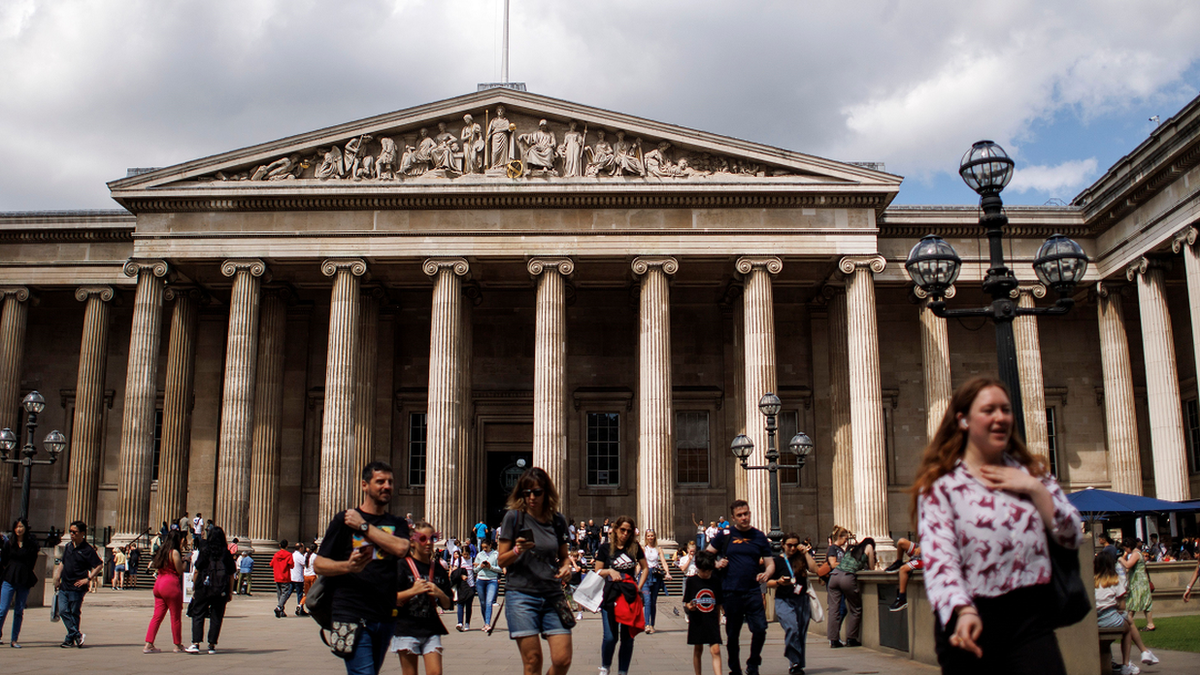
- Published22 August 2023
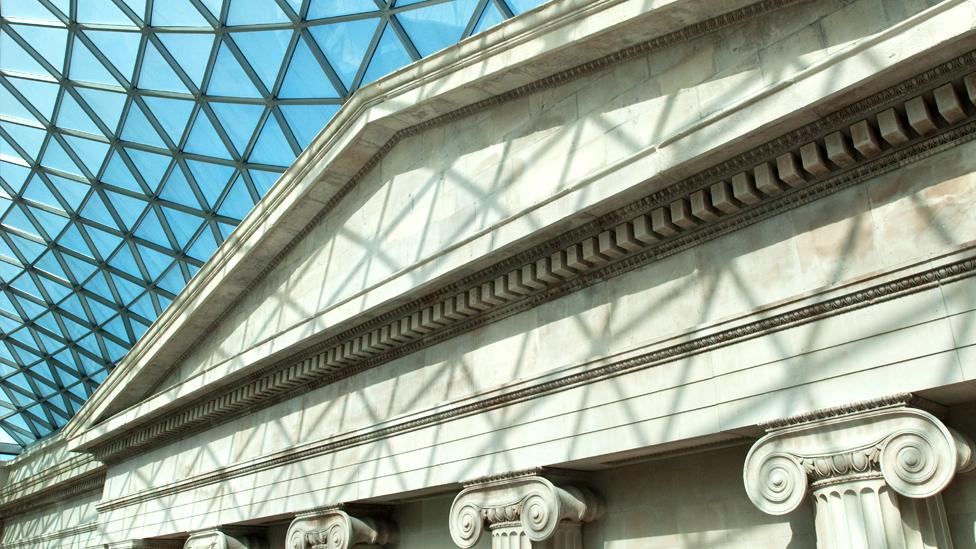
- Published26 August 2023
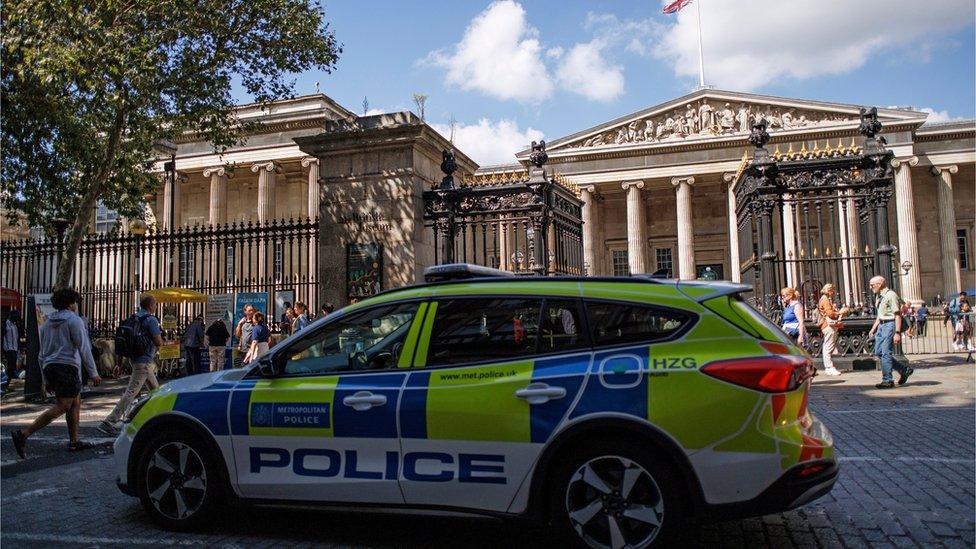
- Published28 July 2023
